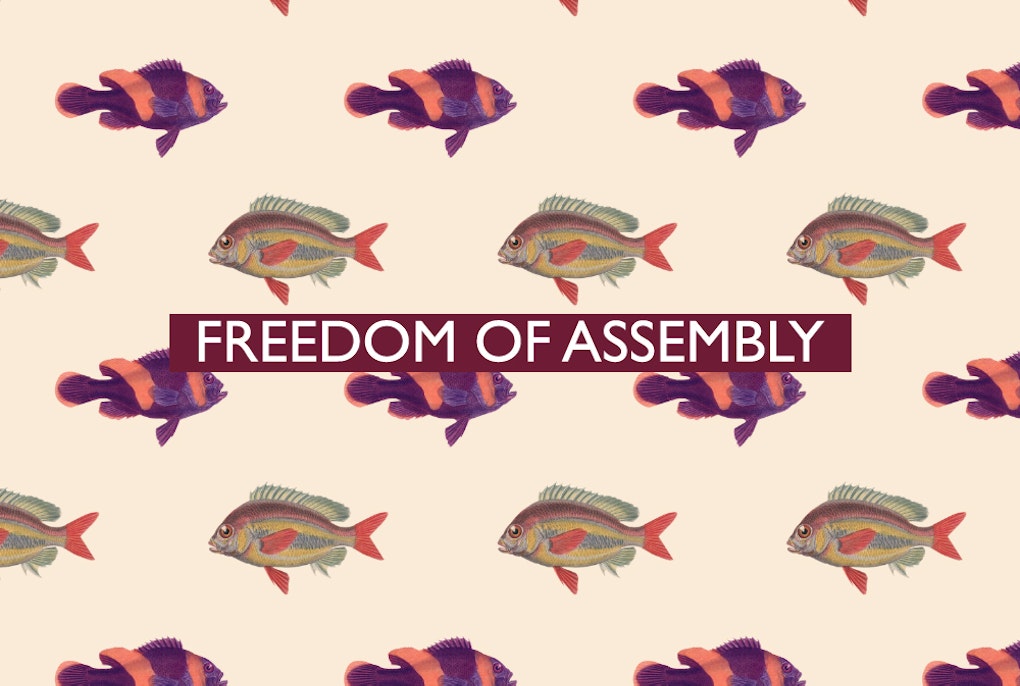
The 12th of all EU-r rights: freedom of assembly and how the Charter contributes
 Gabriel Toggenburg
Gabriel Toggenburg
The European Union has many faces. Nearly everybody knows the Economic Union that connected the European economies to each other and created one of the strongest currencies in the world.
The EU is renowned both for its liberal commitment to safeguarding democracy, upholding the rule of law, and defending human rights, as well as its unwavering dedication to securing its external borders against migration. But there is one vital aspect that often gets overlooked by European citizens: It’s commitment to welfare. The significance of this aspect was emphasised by Jacques Delors, the highly influential President of the European Commission from 1985 to 1995, who reasoned that “The adoption of a social dimension is essential for the survival of the euro area, but it would be desirable for the Union as a whole.” But creating this social dimension sounds quite ambitious as welfare has always been a competence of the member states. Delors further explained that “[h]aving a Social Union does not mean that we should have a single European social protection system, nor that we should interfere with national social systems, but it does mean creating a Union of 28 welfare states.” This vision of a common welfare commitment now seems not only necessary in our times of crises but also possible.
Welfare issues have always been part of the European project, though on a rather limited scale. The European Social Charter of 1961 depicts a first effort to agree on labour and social rights. In the early 90s, while paving the way for the Common Market, Delors also emphasized the importance of a social Europe and initiated dialogue between the social partners on the European level. The importance of welfare issues grew with their implementation within European treaties and charters of the 90s and 2000s. Yet they continued to play a minor role in comparison to economic, external and security-related topics. The current attempt to put welfare issues higher on the European agenda began in 2017 with the introduction of the European Pillar of Social Rights as one element of the economic and monetary union. A total of twenty principles detail the EU's welfare policy orientation regarding equal opportunities and access to the labour market, fair working conditions as well as social protection and inclusion.
It was under Ursula von der Leyen, who became Commission President in 2019 after falling out of favor as defence minister in Germany, that this new pillar of the European project gained momentum. Her Guidelines, made clear that she had already carried out numerous projects to shape the European social pillar, which she restated in her mission letter to her Commissioner for Jobs and Social Rights, the Luxembourger Nicolas Schmit. To enable effective implementation of the European Pillar of Social Rights with its twenty principles, Schmit presented an Action Plan in May 2021. There, and in the previously named documents, numerous projects were proposed. A few selected cases will now be discussed:
This list already shows a lot of progress in this area of EU-politics, which is rarely talked about. Nevertheless, it also shows the limitations of the minimum wage legislation and the absence of an unemployment reinsurance scheme. So, there is still a lot to do in this policy area, if the Social Union is to be achieved. Whether it has a real future will be decided at the next election of the European Parliament in June 2024. The current rise of right-wing populist tendencies and their demands for a stronger role of the nation state could stop its development and even jeopardize its achievements. To further deepen the Social Union a sufficient majority of pro-European and socially aware parliamentarians are needed to support a reform-willing Commission in its ongoing mission. Only then, the vision of Jacques Delors will be accomplished.

Bastian Karge is studying Political Science with a focus on Area Studies at the University of Rostock. He was an intern at the Eurac Research Institute for Comparative Federalism from September to November 2023. His research interests include welfare policy, politics in Mecklenburg-Western Pomerania and electoral research. He also enjoys reading, listening to music, and watching election night coverage.
This content is licensed under a Creative Commons Attribution 4.0 International license.

 Gabriel Toggenburg
Gabriel Toggenburg
 Elisabeth Alber
Elisabeth Alber![[DE] Schwächt Covid-19 Italiens Regionen? Die Frage ist, ob die krisenbedingte Zentralisierung sich verfestigt.](https://webassets.eurac.edu/31538/1599754597-erik-mclean-qvgdn0yeba-unsplashresized.jpg?w=680&h=457&fit=crop&crop=focalpoint&fp-x=0.5&fp-y=0.5&auto=format&dpr=1.5)
 Karl Peter Kössler
Karl Peter Kössler